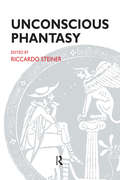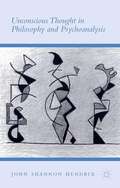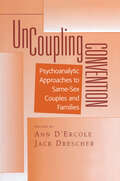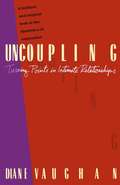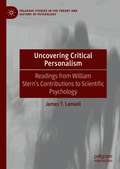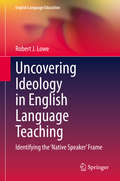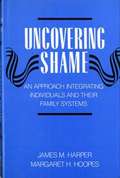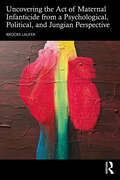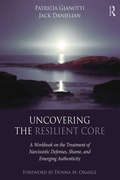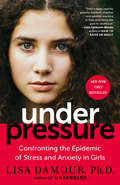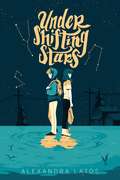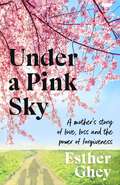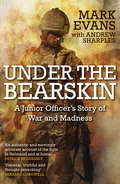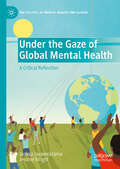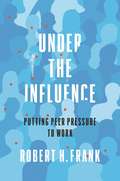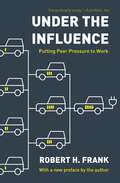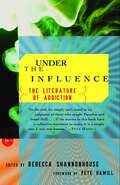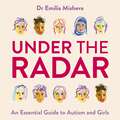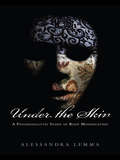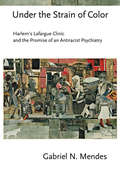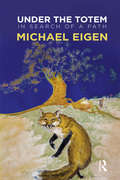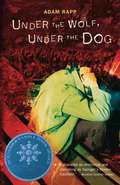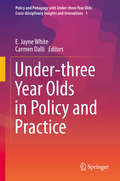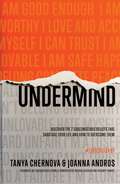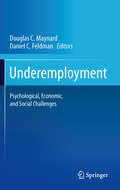- Table View
- List View
Unconscious Phantasy (The\psychoanalytic Ideas Ser. #No. 6)
by Riccardo Steiner'There is no doubt that "phantasy" or "unconscious phantasy", as it started to be used in the English translation of Freud's work in the late 1920s and 1930s to differentiate it from "fantasy", is one of the most important theoretical and clinical concepts of psychoanalysis.'- Riccardo Steiner, from the IntroductionIn this outstanding new collection, the vital concept of unconscious phantasy is debated and examined by such luminaries as Joseph and Anne-Marie Sandler, Jean Laplanche, J-B Pontalis, Susan Isaacs and Hanna Segal. Sigmund Freud's seminal paper Formulations of the Two Principles of Mental Functioning heads an impressive collection and provides a welcome reminder of the beginnings of this theory. The inherent difficulties in translating Freud's work have contributed to the conflicting interpretations that are so illustrated so well in the following articles. By collecting together such diverse opinions of Freudians, Kleinians, Lacanians and Neuroscientists on unconscious phantasy, Riccardo Steiner has created a fresh and compelling elucidation of this fascinating subject.
Unconscious Thought in Philosophy and Psychoanalysis
by John Shannon HendrixUnconscious Thought in Philosophy and Psychoanalysisexplores concepts throughout the history of philosophy that suggest the possibility of unconscious thought and lay the foundation for ideas of unconscious thought in modern philosophy and psychoanalysis. Hendrix considers the workings of unconscious thought, and the role that unconscious thought plays in thinking, language, perception, and human identity. The focus is on the metaphysical and philosophical concepts of unconscious thought, as opposed to the empirical or scientific phenomenon of 'the unconscious', and it is argued that these metaphysical concepts still played an important role in the psychoanalysis of Sigmund Freud and Jacques Lacan. With chapters drawing on a wide range of philosophers from Plotinus to Freud and Lacan,Unconscious Thought in Philosophy and Psychoanalysis casts an original and thought-provoking perspective on the relation between unconscious thought and conscious thought, different kinds of thinking, and the relation between thinking and perceiving.
Uncoupling Convention: Psychoanalytic Approaches to Same-Sex Couples and Families
by Jack Drescher Ann D'ErcoleWhat does it mean to be member of a gay/lesbian couple or family? The contributors to Uncoupling Convention: Psychoanalytic Approaches to Same-Sex Couples and Families address this question by drawing on two cultural movements of the twentieth century: psychoanalysis and the gay/lesbian civil rights movement. Taken together, these traditions provide a framework for understanding, and providing psychotherapeutic assistance to, gay and lesbian patients who present with troubled relationships.The contributors to this volume espouse a clinical focus that supplants the heterosexual perspectives of traditional psychoanalysis with new narratives about family life. Drawing on cultural, feminist, gay/lesbian, and queer studies, they illustrate how concepts of gender and sexuality are routinely informed by unproven heterosexist assumptions - both conscious and unconscious. By examining the changing developmental needs and family dynamics of gay and lesbian families, the contributors broaden our very understanding of what a family is. They illustrate how contrasting cultural constructions of homosexuality and family life play out in same-sex couples. They delineate the multiple realities of gender subjectivity, both in children and in their gay parents. They ponder how technology is shaping reproductive experiences, as lesbians become part of the biomedical system. And they explore recurrent themes of feeling different and ashamed, including the shameful secrecy surrounding same-sex couples' financial matters. In uncoupling conventions, the contributors are effectively coupling post-Freudian psychoanalysis with the insights of queer theory and the critical edge of contemporary cultural studies. The result is a framework for addressing the relational and family-related challenges of gay and lesbian patients that ranges far beyond traditional approaches and will benefit analytic, couples, and family therapists alike.
Uncoupling: Turning Points in Intimate Relationships
by Diane VaughanWith extensive use of interviews of both straight and gay couples, married and live-ins, the book explains in lucid and engaging detail the turning points in intimate relationships showing that there are basic similar patterns.
Uncovering Critical Personalism: Readings from William Stern’s Contributions to Scientific Psychology (Palgrave Studies in the Theory and History of Psychology)
by James T. LamiellThis book brings together the central tenets of William Stern’s critical personalism. Presented for the first time for an English-speaking audience, this selection of original translations and essays encapsulates the critical framework of Stern’s personalistic psychology. The selected works highlight the philosophical basis of Stern’s personalistic views, illustrate their relevance in domains of theoretical and practical importance in psychology, and reveal Stern’s critical stance on certain methodological trends that were gaining favor within psychology during his lifetime. Lamiell’s own chapters contextualise the translations by providing an overview of the most basic tenets of critical personalism, and offering a commentary on paradigmatic commitments within scientific psychology’s mainstream that began to impede Stern’s efforts prior to his death, and that remain obstacles to personalistic thinking in the discipline today. Largely ignored by his contemporaries, this work forms part of an emerging body of scholarship that seeks to reintroduce Stern’s thinking into contemporary psychology. The book is intended for academically oriented scholars with interests in historical, theoretical and philosophical issues in psychology.
Uncovering Ideology in English Language Teaching: Identifying the 'Native Speaker' Frame (English Language Education #19)
by Robert J. LoweThis book introduces the concept of the ‘native speaker’ frame: a perceptual filter within English Language Teaching (ELT) which views the linguistic and cultural norms and the educational technology of the anglophone West as being normative, while the norms and practices of non-Western countries are viewed as deficient. Based on a rich source of ethnographic data, and employing a frame analysis approach, it investigates the ways in which this ‘native-speaker’ framing influenced the construction and operation of a Japanese university EFL program. While the program appeared to be free of explicit expressions of native-speakerism, such as discrimination against teachers, this study found that the practices of the program were underpinned by implicitly native-speakerist assumptions based on the stereotyping of Japanese students and the Japanese education system. The book provides a new perspective on debates around native-speakerism by examining how the dominant framing of a program may still be influenced by the ideology, even in cases where overt signs of native-speakerism appear to be absent.
Uncovering Shame: An Approach Integrating Individuals and Their Family Systems
by James Harper Margaret HoopesThis work articulates a conceptual model of shame and guilt intended to help professionals assess and identify not only shame-prone individuals but also the family systems in which it has developed.
Uncovering the Act of Maternal Infanticide from a Psychological, Political, and Jungian Perspective
by Brooke LauferUsing a wide range of disciplinary backgrounds, Laufer examines the topic of maternal infanticide through the lens of Jungian theory and presents an integrated and forensic view of this issue as an aggregate of personal and political moments, and as a feminine and feminist outcry urging human evolution.The first part of the book will dissect the identity of the infanticidal mother and the Death Mother archetype, with the author providing firsthand accounts of patients that she has worked with in her professional career. The second part of the book focuses on interpreting that act of maternal infanticide, and these chapters will look to the construct of patriarchal Motherhood as a way of explaining the drive and actions of an infanticidal mother. The third and final section of the book takes the concept of evolution and transmutation a step further and addresses what is required in our modern state for the event of maternal infanticide.This is an important new book for Jungian and analytic clinicians and scholars with an interest in maternal archetypes, as well as psychologists and psychiatrists who specialize in perinatal mental health. It would also be appropriate for forensic psychologists and legal analysts, and academics and clinicians in the fields of women’s health and studies.
Uncovering the Resilient Core: A Workbook on the Treatment of Narcissistic Defenses, Shame, and Emerging Authenticity
by Patricia Gianotti Jack DanielianUncovering the Resilient Core provides a comprehensive and inclusive methodology that guides the therapist into the nuances and complexities of the therapeutic relationship throughout the entire course of treatment. With its psychodynamic/relational orientation, this Workbook is unique in that it begins with character pathology in its widest spectrum and moves in depth to understanding and treating corrosive shame, dissociation, trauma and narcissism, including narcissism’s many hidden cultural and dynamic manifestations. The applied nature of this text draws from a wide variety of case examples as well as progressive therapeutic techniques designed to help deepen therapeutic listening skills. Training concepts are organically linked to videotaped treatment examples, with ample discussion questions and case analyses that can be used in your own supervision groups. These videos can be found on www.routledge.com/9781138183285 and serve as companion illustrations closely following the learning points in the text itself.
Under Pressure: Confronting the Epidemic of Stress and Anxiety in Girls
by Lisa DamourAn urgently needed guide to the alarming increase in anxiety and stress experienced by girls from elementary school through college, from the New York Times bestselling author of Untangled“An invaluable read for anyone who has girls, works with girls, or cares about girls—for everyone!”—Claire Shipman, author of The Confidence Code and The Confidence Code for Girls Though anxiety has risen among young people overall, studies confirm that it has skyrocketed in girls. Research finds that the number of girls who said that they often felt nervous, worried, or fearful jumped 55 percent from 2009 to 2014, while the comparable number for adolescent boys has remained unchanged. As a clinical psychologist who specializes in working with girls, Lisa Damour, Ph.D., has witnessed this rising tide of stress and anxiety in her own research, in private practice, and in the all-girls’ school where she consults. She knew this had to be the topic of her new book. In the engaging, anecdotal style and reassuring tone that won over thousands of readers of her first book, Untangled, Damour starts by addressing the facts about psychological pressure. She explains the surprising and underappreciated value of stress and anxiety: that stress can helpfully stretch us beyond our comfort zones, and anxiety can play a key role in keeping girls safe. When we emphasize the benefits of stress and anxiety, we can help our daughters take them in stride. But no parents want their daughter to suffer from emotional overload, so Damour then turns to the many facets of girls’ lives where tension takes hold: their interactions at home, pressures at school, social anxiety among other girls and among boys, and their lives online. As readers move through the layers of girls’ lives, they’ll learn about the critical steps that adults can take to shield their daughters from the toxic pressures to which our culture—including we, as parents—subjects girls. Readers who know Damour from Untangled or the New York Times, or from her regular appearances on CBS News, will be drawn to this important new contribution to understanding and supporting today’s girls.Advance praise for Under Pressure “Truly a must-read for parents, teachers, coaches, and mentors wanting to help girls along the path to adulthood.”—Julie Lythcott-Haims, New York Times bestselling author of How to Raise an Adult
Under Shifting Stars
by Alexandra LatosThis heartfelt novel for fans of Jandy Nelson and Adam Silvera follows twins Audrey and Clare as they grapple with their brother's death and their changing relationships-with each other and themselves. Audrey&’s best friend was always her twin, Clare. But as they got older, they grew apart, and when their brother Adam died, Clare blamed Audrey for the accident. Now, Audrey&’s attending an alternative school where she feels more isolated than ever. Tired of being seen as different from her neurotypical peers, Audrey&’s determined to switch to the public high school, rebuild her friendship with Clare, and atone for Adam&’s death . . . but she&’ll need to convince her parents, and her therapist, first. Clare knows her sister thinks she&’s the perfect twin, but Audrey doesn&’t realize that Clare&’s &“popular&” status is crumbling—she&’s begun to question old friendships, dress in Adam&’s clothes, and wonder what feelings for a nonbinary classmate, Taylor, might mean. As she grapples with not only grief but also her gender fluidity, Clare wonders where she&’ll belong if she sheds her carefully constructed image and embraces her true self. Will first crushes, new family dynamics, and questions of identity prove that Audrey and Clare have grown too different to understand each other-or that they've needed each other all along?
Under a Pink Sky
by Esther GheyA MOTHER’S TRUE STORY OF LOVE, LOSS, THE POWER OF FORGIVENESS & THE FIGHT TO PROTECT OUR CHILDREN’S FUTURES IN THE DIGITAL AGE.'Remarkable' Daily Mail'Remarkable…really honest' Lorraine Kelly'A very powerful and very moving book' Anita Rani, Woman's Hour'One of the most unflinching, inspirational autobiographies I’ve read, a remarkable cry of hope from the depths of despair' GuardianOn 11 February 2023, 16-year-old Brianna Ghey left home to meet her friend in a park local to her home in Warrington, Cheshire. Her mother, Esther, was relieved to see her go – a positive step after a difficult and increasingly isolated few years. What Esther didn’t know that day was that Brianna was being lured to the park where she would be tragically murdered.There was at once an international outpouring of anguish and outrage for a young life brutally snatched away and a mother’s worst nightmare come true. Amidst global displays of support, the usually shy and private Esther began to reflect on how she could channel her own personal grief into campaigning to help others and to create a lasting legacy for her child.This is the story of Brianna’s death, but it is also the story of her life and of a mother who had to find a way to survive without her. It is a story of transforming unimaginable tragedy into change, of the power of empathy, and a call for understanding and unity in the face of the threats our young people face in an increasingly unchecked digital world.This is Esther’s fight for a safer, more hopeful future.
Under the Bearskin: A junior officer’s story of war and madness
by Mark Evans Andrew Sharples'A fast-paced, thrilling account of British heroism, brave men surrounded and fighting against overwhelming odds. This is the real, sometimes shocking, and deeply personal story of modern warfare and PTSD.' Andy McNab'This hugely timely book reveals in gripping detail the personal stories of its hidden victims - lest we forget.' Damien LewisTrapped in an isolated outpost on the edge of the Helmand desert, a small force of British and Afghan soldiers is holding out against hundreds of Taliban fighters. Under brutal siege conditions, running low on food and ammunition, he experiences the full horror of combat. As the casualties begin to mount and the enemy closes in, Evans finds both his leadership and his belief in the war severely tested. Returning home, he is haunted by the memories of Afghanistan. He can't move on and his life begins to spin out of control.Under the Bearskin was previously published as Code Black.
Under the Gaze of Global Mental Health: A Critical Reflection (The Politics of Mental Health and Illness)
by Janaka Jayawickrama Jerome WrightThis book critically examines how the globalisation of mental health through the dominant medical model has created barriers to understanding and responding to distress with reference to cases from Malawi and Sri Lanka. Its authors argue that mental health must be understood within the overall health of an individual, and individual health is located within the social, political, cultural, economic, and environmental context in which they live. Their analyses demonstrate that supplanting locally developed responses to distress with a Western medicalised model of mental health inhibits a meaningful engagement with individuals and communities in need of care. Further, they argue that this &‘supplanting&’ is analogous with a colonial endeavour, and one which diverts attention from the real problems of development. Across contexts the book highlights the difficulties that mental health professionals face in facilitating individuals&’ capacities within structurally damaging socio-economic environments and increasingly commercially orientated health systems. This book will appeal in particular to students, researchers and practitioners working across the fields of mental health, medical anthropology, social work, and health and development studies.
Under the Influence: Putting Peer Pressure to Work
by Robert H. FrankFrom New York Times bestselling author and economics columnist Robert Frank, bold new ideas for creating environments that promise a brighter futurePsychologists have long understood that social environments profoundly shape our behavior, sometimes for the better, often for the worse. But social influence is a two-way street—our environments are themselves products of our behavior. Under the Influence explains how to unlock the latent power of social context. It reveals how our environments encourage smoking, bullying, tax cheating, sexual predation, problem drinking, and wasteful energy use. We are building bigger houses, driving heavier cars, and engaging in a host of other activities that threaten the planet—mainly because that's what friends and neighbors do.In the wake of the hottest years on record, only robust measures to curb greenhouse gases promise relief from more frequent and intense storms, droughts, flooding, wildfires, and famines. Robert Frank describes how the strongest predictor of our willingness to support climate-friendly policies, install solar panels, or buy an electric car is the number of people we know who have already done so. In the face of stakes that could not be higher, the book explains how we could redirect trillions of dollars annually in support of carbon-free energy sources, all without requiring painful sacrifices from anyone.Most of us would agree that we need to take responsibility for our own choices, but with more supportive social environments, each of us is more likely to make choices that benefit everyone. Under the Influence shows how.
Under the Influence: Putting Peer Pressure to Work
by Robert H. FrankFrom New York Times bestselling author and economics columnist Robert Frank, bold new ideas for creating environments that promise a brighter futurePsychologists have long understood that social environments profoundly shape our behavior, sometimes for the better, often for the worse. But social influence is a two-way street—our environments are themselves products of our behavior. Under the Influence explains how to unlock the latent power of social context. It reveals how our environments encourage smoking, bullying, tax cheating, sexual predation, problem drinking, and wasteful energy use. We are building bigger houses, driving heavier cars, and engaging in a host of other activities that threaten the planet—mainly because that's what friends and neighbors do.In the wake of the hottest years on record, only robust measures to curb greenhouse gases promise relief from more frequent and intense storms, droughts, flooding, wildfires, and famines. Robert Frank describes how the strongest predictor of our willingness to support climate-friendly policies, install solar panels, or buy an electric car is the number of people we know who have already done so. In the face of stakes that could not be higher, the book explains how we could redirect trillions of dollars annually in support of carbon-free energy sources, all without requiring painful sacrifices from anyone.Most of us would agree that we need to take responsibility for our own choices, but with more supportive social environments, each of us is more likely to make choices that benefit everyone. Under the Influence shows how.
Under the Influence: The Literature of Addiction
by Rebecca ShannonhouseDrawing on two centuries of important literary and historical writings, Rebecca Shannonhouse has shaped a remarkable collection of works that are, in turn, tragic, compelling, hilarious, and enlightening. Together, these selections comprise a profound and truthful portrait of the life experience known as addiction. Under the Influence offers classic selections from fiction, memoirs, and essays by authors such as Tolstoy, Cheever, Parker, and Poe. Also included are topical gems by writers who illuminate the causes, dangers, pleasures, and public perceptions surrounding people consumed by excessive use of drugs, alcohol, and tobacco. Recent provocative works by Abraham Verghese, the Barthelme brothers, Margaret Bullitt-Jonas, and others expand and modernize the definition of addiction to include sex, gambling, and food. Together, these incomparable writings give shape and meaning to the raw experience of uncontrollable urges. Shannonhouse’s recent anthology, Out of Her Mind: Women Writing on Madness, is also available as a Modern Library Paperback.
Under the Radar: An Essential Guide to Autism and Girls
by Emilia MishevaWhat is the first thing that comes to your mind when you think of autism? Often, it's a boy who struggles with friendships, but who loves trains and is great at maths. While this may reflect the experiences of some autistic people, in recent years research and first-hand accounts have shown that many others don't conform to this image. The historical perception of autism as a "male condition" as well as simplistic stereotypes have led to an under-identification of autism in some girls and women - and, indeed, in all people, regardless of gender, who do not fit this mould.This straightforward, one-stop guide introduces you to the differing presentations of autism that are common in girls, but also explores why referring to 'male' and 'female' autism is too reductive. Describing why some autistic girls' needs are identified late or not at all, looking at friendships and relationships, education, mental health and puberty, this concise, easy-to-understand and informative book draws on both lived experience and research to offer a popular science overview of this important topic.
Under the Skin: A Psychoanalytic Study of Body Modification (The New Library of Psychoanalysis 'Beyond the Couch' Series)
by Alessandra LemmaAlessandra Lemma - Winner of the Levy-Goldfarb Award for Child Psychoanalysis! Under the Skin considers the motivation behind why people pierce, tattoo, cosmetically enhance, or otherwise modify their body, from a psychoanalytic perspective. It discusses how the therapist can understand and help individuals for whom the manipulation of the body is felt to be psychically necessary, regardless of whether the process of modification causes pain. In this book, psychoanalyst Alessandra Lemma draws on her work in the consulting room, as well as films, fiction, art and clinical research to suggest that the motivation for extensively modifying the surface of the body, and being excessively preoccupied with its appearance, comes from the person’s internal world – under their skin. Topics covered include: body image disturbance appearance anxiety body dysmorphic disorder the psychological function of cosmetic surgery, tattooing, piercing, and scarification. Under the Skin provides a detailed study of the challenges posed by our embodied nature through an exploration of the unconscious phantasies that underlie the need for body modification, making it essential reading for all clinicians working with those who are preoccupied with their appearance and modify their bodies including psychotherapists, counsellors, psychiatrists and psychologists.
Under the Strain of Color: Harlem's Lafargue Clinic and the Promise of an Antiracist Psychiatry
by Gabriel N. MendesIn Under the Strain of Color, Gabriel N. Mendes recaptures the history of a largely forgotten New York City institution that embodied new ways of thinking about mental health, race, and the substance of citizenship. Harlem's Lafargue Mental Hygiene Clinic was founded in 1946 as both a practical response to the need for low-cost psychotherapy and counseling for black residents (many of whom were recent migrants to the city) and a model for nationwide efforts to address racial disparities in the provision of mental health care in the United States. The result of a collaboration among the psychiatrist and social critic Dr. Fredric Wertham, the writer Richard Wright, and the clergyman Rev. Shelton Hale Bishop, the clinic emerged in the context of a widespread American concern with the mental health of its citizens. It proved to be more radical than any other contemporary therapeutic institution, however, by incorporating the psychosocial significance of antiblack racism and class oppression into its approach to diagnosis and therapy. Mendes shows the Lafargue Clinic to have been simultaneously a scientific and political gambit, challenging both a racist mental health care system and supposedly color-blind psychiatrists who failed to consider the consequences of oppression in their assessment and treatment of African American patients. Employing the methods of oral history, archival research, textual analysis, and critical race philosophy, Under the Strain of Color contributes to a growing body of scholarship that highlights the interlocking relationships among biomedicine, institutional racism, structural violence, and community health activism.
Under the Totem: In Search of a Path
by Michael EigenThis book is an extended reverie, reflection, confession, assessment, engagement with psychic reality. It offers further invitation into the mystery at the heart of the human experience that is, at its core, also at the heart of the psychoanalytic journey.
Under the Wolf, Under the Dog
by Adam RappSixteen-year-old Steve struggles to make sense of his mother's terminal breast cancer and his brother's suicide.<P><P> Winner of the Schneider Family Book Award
Under-three Year Olds in Policy and Practice (Policy and Pedagogy with Under-three Year Olds: Cross-disciplinary Insights and Innovations)
by Carmen Dalli E. Jayne WhiteThe first book in the series Policy and Pedagogy with Under-three year olds: Cross Disciplinary insights and innovations establishes a path for the much-needed examination of the experiences of infants and toddlers in contemporary educational settings across the globe. Bringing together internationally renowned scholars in the field, it starts a series of discussions about the positioning of under-three year olds in contemporary practice and policy contexts. It takes an in-depth look at what this means for our understanding of under-three year olds and those who share their worlds. Featuring some of the most important contemporary topics in this pedagogical domain, such as care, well-being, belonging, professionalism and status, the contributors offer a kaleidoscope of perspectives for contemplating the new normality of very young children living their lives in group-based early childhood settings, and what gives rise to their current realities. It also explores some important policy directions and trends.
UnderMind: Discover the 7 Subconscious Beliefs that Sabotage Your Life and How to Overcome Them
by Tanya Chernova Joanna AndrosThis #1 bestselling book is for everyone who has ever wanted to be successful in any area of life, but is left wondering why they simply can&’t attain it.Seven destructive beliefs are quietly living and breathing in the subconscious minds of billions of people. They are the pillars of a corrupt unconscious belief system that sabotages success, and because of them bank accounts dwindle, self-esteem suffers, relationships fail, health falters, and inner peace is always out of reach. When you understand which of the seven beliefs are operating in your own life, you will see how they have affected your past and how they will control your future – if you let them. Through methodically designed exercises, UnderMind provides you with a revealing evaluation of what your subconscious mind is programmed to achieve or sabotage. The life-changing results of these exercises tell you why you&’ve made achievements in certain areas, while you&’ve floundered on others. With UnderMind&’s groundbreaking methods for revelation and reprogramming, self sabotaging beliefs that have existed for decades can be dissolved in only hours. Financial abundance, self-love, meaningful relationships, health, fulfillment and more are possible when you take control of your subconscious and stop living UnderMind. Gain the effortless power to accomplish anything! This book is for everyone who has ever wanted to be successful in any area of life, but is left wondering why they simply can&’t attain it.
Underemployment
by Daniel C. Feldman Douglas C. MaynardUnderemployment - when people are employed in some way that is insufficient, such as being overqualified or working part-time when one desires full-time employment - is a challenge faced by all industrialized nations and their organizations and individuals. Just like unemployment, some level of underemployment exists even in the best of times, but it becomes more pervasive when the job market is weak. Given the current economic climate in North America and abroad, researchers and scholars in various disciplines (psychology, business, sociology, economics) are becoming more interested in investigating the effects of underemployment and identifying possible practical solutions. Underemployment synthesizes the current understanding of the phenomenon by bringing together scholars with diverse perspectives and expertise with the aim of informing and guiding the next generation of underemployment research.
